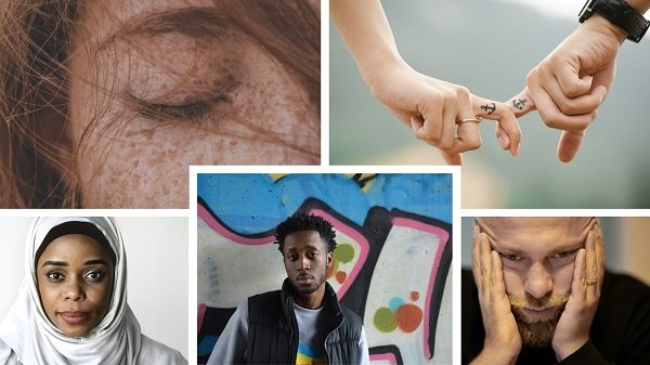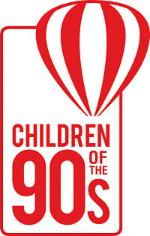Better support is needed for young people vulnerable to abuse in intimate relationships

Relationship abuse affects around one-third of women and men in the UK by the time they turn 22, with latest figures showing it to be most common among young adults. The costs associated with domestic abuse in the UK (of which relationship abuse makes up a large part) are estimated to be £66 billion.
About the research
People who experience domestic abuse are at greater risk for long-term negative physical and mental health outcomes, economic instability, drug and alcohol misuse, homelessness and revictimization.
The impacts have devastating effects on children, family, friends and communities: young people are at high risk of continuing to experience abuse as they grow older.
There is evidence to suggest that the children of those in abusive relationships are more likely to experience relationship abuse as they grow older.
Efforts to prevent domestic abuse may be more effective if we target young people when they first start having intimate relationships.
Our research aimed to explore the ‘life-course’ experiences of young people affected by relationship abuse.
We conducted in-depth interviews with young people aged 18-25 , and analysed longitudinal survey data on 18-21 year olds from an existing separate study.
We brought all of this information together to better understand young people’s experiences and the impact of abuse and support throughout the life-course.
Policy recommendations
Services for young people
- Staff working or in contact with young people, including those in schools, should be appropriately trained in trauma-informed care.
- Trauma-informed care training should include how to recognise abuse, including psychological/coercive controlling behaviours.
- Training should include an understanding of power dynamics - such as how a conversation between a professional and young person can mirror experiences of a previous abusive relationship
- When young people seek help from organisations and institutions, they need to feel empowered to make choices about what actions may follow.
- Training should also include understanding and addressing unconscious bias to avoid inadequate or inappropriate responses to those from different cultural groups, disadvantaged backgrounds, and those with disabilities.
- Frontline professionals need a clear understanding of referral pathways to ensure that young people receive appropriate information and support.
- Sharing evidence-based practice about responding to survivors’ needs can help inform the approach of services and professionals.
Healthcare providers
- GP, maternity and counselling services are uniquely placed to effectively respond to the needs of survivors of interpersonal violence and abuse.
Schools
- All schools should teach young people to recognise psychologically abusive and controlling aspects of relationships.
- Relationship education content should be consistent and inclusive of all sexual orientations, ethnicities, and abilities.
Research Summary
To inform policy and interventions we wanted to understand how relationship abuse is experienced by young people. Our research explored the impact and circumstances of abuse and support received.
In this four-year UK Medical Research Council funded research programme during 2019-2023, taking a life-course approach we looked at:
-
Young people’s experiences through their lives up to the abusive intimate relationship(s).
-
The different ways young people experienced abuse.
-
Turning points in their understanding of abuse and ability to leave the abusive relationship.
We conducted in-depth interviews with 19 young people aged 18-25, including female and male (cis- and trans-), and non-binary participants.
We also analysed longitudinal survey data (postal, online, and face-to-face computer assisted) on around 3,000 young people aged 18-21, including data from when their mothers were pregnant until present.
Key Findings
- There are many access points of possible interventions for young people experiencing maltreatment.
- Children and young people often ask for help, and not necessarily about the abuse itself.
- Young women experienced more sexual abuse and are more likely to experience many types of abuse (sexual, psychological, physical).
- The majority of those exposed to interpersonal violence and abuse (IPVA) perceived the behaviour as harmful, with increased severity or frequency seen as more harmful.
- In the sample, young people experiencing IPVA were likely to have more depressive symptoms than those not victimised.
- Experiencing depressive symptoms during their teenage years put these young people at higher risk of abuse in their relationships later in young adulthood.
Policy implications
- Young people can often be vulnerable through a long history of adverse childhood experiences such as maltreatment, mental health problems, and loneliness, going back as far as early childhood.
- Children and young people often ask for help for difficulties other than intimate relationship abuse, which are opportunities to intervene and support.
- The school environment and relationship education provide key opportunities for information and support for young people.
- Other community and clinical settings outside of school (e.g. maternity services, GPs), provide extra opportunities to identify and support vulnerable young people.
- It is essential that young people – especially those most at risk of isolation, loneliness, and mental health issues, and therefore more vulnerable—are listened to and feel taken seriously.
- Distress and loneliness in young people from ethnic minorities, disadvantaged backgrounds or those with disabilities, is less likely to be recognised and appropriately acted upon by trusted peers or adults.
Key themes
Vulnerable young people
Young people were often ‘vulnerable’; they had a history of other forms of abuse within their family, bullying, loneliness, mental health issues, or learning difficulties or disability, that put them at higher risk of abusive intimate relationships.
- Young people were often vulnerable long before the abusive intimate relationship(s) had begun.
- The abusive relationships made young people even more vulnerable to further abuse.
- Psychological abuse was a feature in all abusive relationships, including coercive control (intimidating, manipulative and controlling behaviour).
- Young women experienced more sexual abuse than young men, and more often all three types of abuse (psychological, physical, sexual).
I was waiting at a bus stop. He was on his break, and he thought I was fit. He asked me how old I was. I didn’t ask how old he was…and because I was severely lonely… I mean severely…And he was the first guy to listen to me
Missed opportunities
- Children and young people often asked for help from school, or a community or clinical service, such as maternity services or GP.
- Children and young people asked for help either because of the abusive relationship itself, or for other issues.
- Responses to help-seeking were often felt inappropriate for children and young people’s needs or not ‘trauma-informed’.
School should do more awareness, but maybe when you’re 12 and then all the way through. A bit like the Freedom [programme]. It should be like that.
How information and support is provided
- Young people experiencing coercive control often did not recognise it as abuse.
- When young people were in contact with trusted peers or adults (from childhood through to young adulthood), it was not always recognised that they were vulnerable.
- When young people sought help for either relationship abuse or other issues, they often did not feel listened to or believed.
- When the young person sought help within institutions or services, they often felt the unequal power dynamics of their previous abusive relationships being repeated.
- Equality of relationship and trust were particularly important to young people in building supportive relationships and agency. They felt support workers did this particularly well.
- When attending health services - particularly the GP – young people wanted to be able to build a trusting relationship by seeing the same doctor each time and not having to repeat themselves.
- Lack of recognition, or inappropriate information or support, was particularly a problem for already disadvantaged groups, e.g. ethnic minorities or LGBTQ+.
- Some young people were signposted to an appropriate third-sector specialist service (e.g. the Freedom programme which is often delivered by domestic abuse charities).
- Receiving specialist support was helpful for building knowledge about abuse. It provided strength and confidence for young people to leave an abusive partner.
I saw him [disability support worker] weekly throughout the time I was [at university]… he was brilliant... It was just ‘What is best for her?’ Like having a dad at university. I didn’t need someone to condemn [partner], I needed someone to support me. That is what he provided.
Further information
The Freedom Programme (an informative intervention for victims and survivors of relationship abuse): https://www.freedomprogramme.co.uk/
Further information about the Young Adult Relationships and Health (YARAH) study: https://www.bristol.ac.uk/primaryhealthcare/researchthemes/yarah-study/
Academic outputs of the YARAH study:
Herbert A, Fraser A, Howe LD, et al. Categories of Intimate Partner Violence and Abuse Among Young Women and Men: Latent Class Analysis of Psychological, Physical, and Sexual Victimization and Perpetration in a UK Birth Cohort. Journal of Interpersonal Violence, 38(1-2), 931-954 (2023). https://doi.org/10.1177/08862605221087708
Barnes M, Szilassy E, Herbert A, et al. Being silenced, loneliness and being heard: understanding pathways to intimate partner violence & abuse in young adults. a mixed-methods study. BMC Public Health 22, 1562 (2022). https://doi.org/10.1186/s12889-022-13990-4
Herbert A, Heron J, Barnes M, et al. Exploring the causal role of intimate partner violence and abuse on depressive symptoms in young adults: a population-based cohort study. BMC Med 20, 1 (2022). https://doi.org/10.1186/s12916-021-02182-3
Barnes, M, Barter C, Herbert A, et al. Young People and Intimate Partner Violence: Experiences of Institutional Support and Services in England. J Fam Viol (2023). https://doi.org/10.1007/s10896-023-00591-x
Acknowledgements
Grateful thanks and acknowledgement to the organisations and people who helped in recruiting participants for the interviews, which for confidentiality reasons we are unable to name. You know who you are. With very particular thanks to all the young people who gave hours of their time to participate, wanting to help others who may find themselves in similar circumstances.
We are also grateful to all the families who took part in the Avon Longitudinal Study of Parents and Children (ALSPAC), the midwives for their help in recruiting them, and the whole ALSPAC team, which includes interviewers, computer and laboratory technicians, clerical workers, research scientists, volunteers, managers, receptionists and nurses.
This work was funded by the UK Medical Research Council (MR/S002634/1).
Authors
Maria Barnes, Annie Herbert, Gene Feder, Eszter Szilassy, Abigail Fraser, Laura Howe, Jon Heron (University of Bristol);
Christine Barter (University of Central Lancashire)
Policy Report 91: January 2024
Contact the researchers
Dr Maria Barnes maria.barnes@bristol.ac.uk
Dr Annie Herbert annie.herbert@bristol.ac.uk

